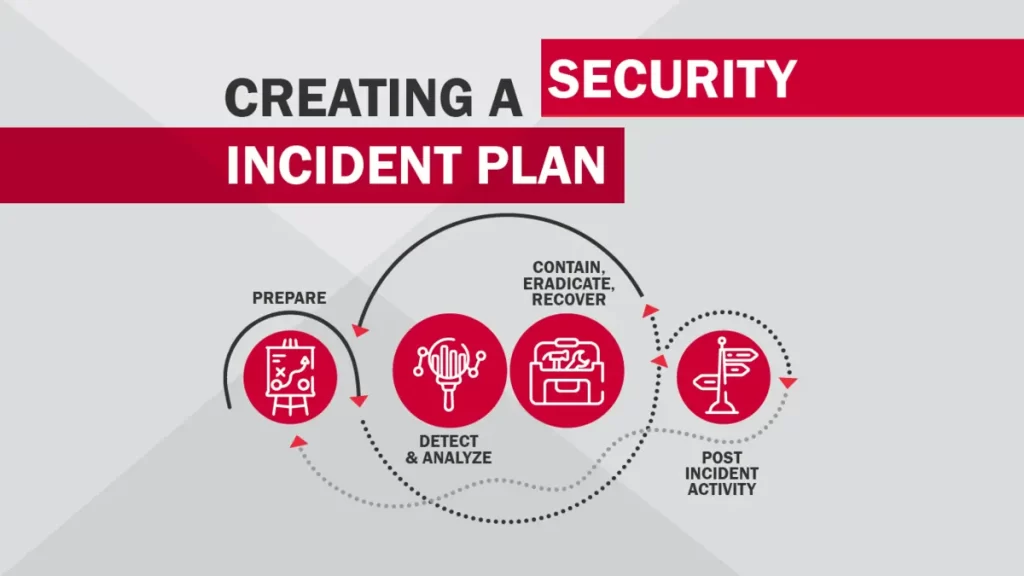OSINT analyst technical and social competency areas are presented here based on a uOttawa PhD thesis (2020) completed at the School of Electrical Engineering and Computer Science (EECS), Faculty of Engineering, on the topic of ethical hacking sociotechnology titled Technoethics and sensemaking: Risk assessment and knowledge management of ethical hacking in a sociotechnical society (thesis advisory committee: uOttawa professors Rocci Luppicini, Liam Peyton, and Andre Vellino).
- What is OSINT?
- Who uses OSINT technologies and tactics?
- OSINT analyst cybersecurity role
- Technical competency areas
- Social competency areas
You may also be interested in Social engineering in ethical hacking.
What is OSINT?
OSINT is the first phase of the penetration testing (ethical hacking) process, planning notwithstanding. OSINT is used to determine entry points into a computer/security system. For NIST (2008), the discovery phase of the penetration testing process spans OSINT or reconnaissance or footprinting, network enumeration, and port scanning. Penetration testing involves “launching real attacks on real systems and data using tools and techniques commonly used by hackers” (NIST SP 800-115, p. 5-2).

The Penetration Testing Execution Standard, developed by a group of cross-industry information security practitioners, defines OSINT as “a form of intelligence collection management that involves finding, selecting, and acquiring information from publicly available sources and analyzing it to produce actionable intelligence.”
Who uses OSINT technologies and tactics?
“OSINT” can be a verb (intelligence gathering) or a noun (actionable intelligence). Intelligence can be gathered passively (without interaction with intelligence sources), or actively. Intelligence gathering tactics span social engineering and automated analysis.
AI and algorithm based OSINT are used extensively by hackers and penetration testers to gather intelligence about a specific target. OSINT analysis is typically performed using open source tools, resources, and methodologies. For example, automated OSINT tools can be used to collect, aggregate, harvest, and analyze data from social networks, including names, online handles, jobs, friends, likes/dislikes, locations, pictures, etc. (McLaughlin, 2012). Recon-ng and Maltego are data management tools designed to facilitate the process of gathering, analyzing, and organizing OSINT.
Within the context of information security risk management, OSINT is the initial stage of an information security risk assessment that involves understanding what systemic vulnerabilities exist (technological, human, and policies) and what threats exist to prized information assets that can exploit the vulnerabilities, the likelihood of an attack, and what damage an attack can cause so as to establish risk levels and prioritize anti- or counter- threat measures.
OSINT can also be part of an information security audit to evaluate the performance or effectiveness of security controls, or conducted to ensure compliance with certain security testing requirements/standards.
OSINT analyst cybersecurity role
OSINT analyst cybersecurity role and body of knowledge (BoK) foundation framework is presented here 1) as a specialized knowledge/skill area of ethical hacking within information security risk assessment practices; and 2) as an interdisciplinary research area and a composite baseline skillset for an introductory course to cybersecurity and for security awareness training in higher education institutions and business organizations.
A foundational framework of teaching ethical hacking skills in computer science, computer engineering, and software engineering undergraduate programs in higher education was constructed based on insights derived from a social science approach to ethical hacking technology conceptualization (STEI-KW as a theoretical framework within the science and technology studies tradition), a systematic literature review, and in-depth interviews with ethical hacking university experts and industry practitioners, and policy experts. STEI-KW is a carefully defined academic idea that theorizes the nature (systemic properties) of Canadian society.
PhD Thesis Interview Participants by Area of Expertise
An OSINT investigation starts with answering an answerable question and follows a structured approach to problem solving. OSINT analysts collect, analyze, and interpret the findings and place them in social, economic, and political context.
OSINT analysts operate at the intersection of complex technical and social processes, and sometimes in a grey area. This warrants attention from society, as this role fulfills a societal need for self-reflexivity (it embodies the sociopolitical contradictions in values within a liberal society, especially the tension between regulation/intervention and liberty).
The competency areas of the following modular professional ethical hacking training framework are loosely divided into technical hacking skills and social hacking skills though they really intersect several competency areas (management, legal, etc.).
1. Technical competency areas
The key idea is to teach students when they’re designing networks, when they’re designing software, these are vulnerabilities to watch out for, these are vulnerabilities to test for, but they’re all the kinds of things that, if you are going to be a hacker, that you would need to know about, because you’d try to exploit those. And if you’re an ethical hacker, you’re going to try to exploit those just the same as if you’re a black-hat hacker.
PhD thesis interview participant #3 (Professor of Computer Science and Software Engineering at University of Ottawa)
1.1. Two Key Ethical Hacking Paradigms
1.2. Ethical Hacking High-Level Concepts (3 Levels of Abstraction)
1.3. High-Level Network Security Risk Management Concepts (table)
1.4. What Constitutes Hacking Skills?
Steps of the penetration testing process
Open source penetration testing methodologies
1.5. Teaching Ethical Hacking Skillset Framework
2. Social competency areas
2.1. Who Are Ethical Hackers and What Do They Do?
2.2. Critical Thinking and Problem-Solving Skills
2.3. STEI-KW and Society (table)
Properties of a Sociotechnical Society (STEI-KW analytical elements)
The Epistemological Roots of STEI-KW as a Sociotechnical Theory of Society
STEI-DMG: Opportunities and Risks of Teaching Students Hacking Skills
2.5. Important Cybersecurity Regulations
IT Security Governance and IT Security Management (Adapted from Educause.edu)
Related content
Critical thinking theory, teaching, and practice
Ethical Hacking Sociotechnology
Social engineering in ethical hacking
Back to DTI Courses
Related content (off-site)
IntelTechniques by Michael Bazzell
Other content
1st Annual University of Ottawa Supervisor Bullying ESG Business Risk Assessment Briefing
Disgraced uOttawa President Jacques Frémont ignores bullying problem
How to end supervisor bullying at uOttawa
PhD in DTI uOttawa program review
Rocci Luppicini – Supervisor bullying at uOttawa case updates
The case for policy reform: Tyranny
The trouble with uOttawa Prof. A. Vellino
The ugly truth about uOttawa Prof. Liam Peyton
uOttawa engineering supervisor bullying scandal
uOttawa President Jacques Frémont ignores university bullying problem
uOttawa Prof. Liam Peyton denies academic support to postdoc
Updated uOttawa policies and regulations: A power grab
What you must know about uOttawa Prof. Rocci Luppicini
Why a PhD from uOttawa may not be worth the paper it’s printed on
Why uOttawa Prof. Andre Vellino refused academic support to postdoc



